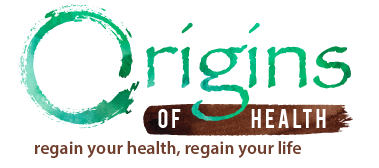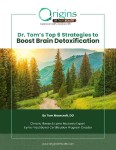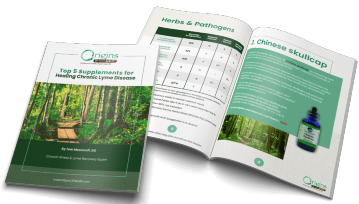The landscape of the global Coronavirus pandemic is changing rapidly. In this video, I get you updated and answer many of the questions I’m getting asked about this novel Coronavirus and COVID-19. Check it out.
Is the Coronavirus Really Spreading?
This morning the CDC announced the following numbers of Coronavirus cases:

From www.cdc.gov
All this as the worldwide cases of the novel Coronavirus approach 114,000 with over 4,000 deaths.
If we look at the trajectory of increase of the number of cases of the Coronavirus we what’s starting to look like an exponential curve:

From worldometers.info
Why are we seeing such a sharp rise in the number of cases in the US?
There are likely three main reasons:
- The virus is spreading and the number of cases is truly increasing
- We have more access to testing so we are able to more accurately count positive tests.
- There is much greater awareness and more people are recognizing they are sick and presenting for testing.
My sense is that all three of these are contributing to this increase. In a sense, as more tests are available this week, we will likely see somewhat of an artificial bump in the numbers as we are able to test more patients with mild disease that previously were not tested. In other words, over the last couple of weeks we didn’t have enough kits to test everyone who needed it so testing was saved for the most severely ill. Now we’re starting to be able to test more people.
To put it into perspective, there are well over 30 million cases of seasonal influenza and already over 17,000 deaths in the US alone this season.
Is Coronavirus really all that dangerous?
Compared to the seasonal flu, YES. The average morality rate for seasonal flu is usually around 0.1%. The current estimates for COVID-19, the respiratory disease caused by the novel Coronavirus, are between 1-3.5% Currently global morality rates are around 3.5%. This number will likely go down as more mild cases are found due to increased awareness and testing. If we look at the Diamond Princess cruise ship because it was an isolated population of people who could all be evaluated and tested, the mortality is ~1%. Now this is much lower than the current global statistic of 3.5%, but even at 1% that means COVID-19 is at least 10 times more deadly than the average seasonal flu.
What are the symptoms of COVID-19?
The main symptoms being reported are fever, cough and shortness of breath. Unlike seasonal flu that tends to have a fairly rapid onset, some doctors on the west coast who have a lot of experience with COVID-19 are reporting that many patients felt body aches, malaise (not feeling right, just off) and had low grade fevers for up to a week before they developed the more common symptoms. In medicine, we call this a prodrome. Once patients develop difficulty breathing, they can rapidly develop pneumonia or pneumonitis (read – bad lung problems), particularly if they have pre-existing medical conditions, such as asthma, lung disease, diabetes and heart disease.
Is there a vaccine for the novel Coronavirus?
There is no vaccine available for the Coronavirus. This is being worked on, however realistically it will take more than 1 year to come to market, and that would be exceptionally fast.
Are there any treatments for the novel Coronavirus?
There are currently no medications approved for treatment of COVID-19. There is an intravenous anti-viral, originally developed to treat Ebola and, while it was not effective for Ebola, it shows promise in early clinical use of the most severely ill patients who have received compassionate-care use exemptions. There are plans for further studies of this drug around the world.
Herbs
Are you interested in herbs and supplements that can help boost your immune function? Scroll to the second half of my Coronavirus COVID-19 Update
Immune Support
If you’re interest in learning my Top 5 tips for boosting your immune system naturally so you’re as prepared as you can be if exposed to the Coronavirus, I highly recommend downloading my FREE Coronavirus Cheat Sheet.
What should I do if I think I have the Coronavirus?
Unless you have moderate-severe difficulty breathing, STAY HOME and call your doctor, urgent care center or local emergency department (ED). Depending upon your symptoms, you may be recommended to stay home and self-quarantine or go to a designated testing area. Staying out of the doctor’s office, urgent care or ED will minimize the risk to others if you do have the Coronavirus.
Many hospital systems and doctor’s offices are setting up “drive through” testing sites. I’ve heard of this in Vermont, Washington State and right here in Connecticut. Doctors are doing their best to provide you the best care possible and protect others, including healthcare workers. With the rapid spread of the Coronavirus, medical systems are in danger of being overwhelmed and inadvertently increasing the spread of the virus. Do everyone a favor and call ahead.
Be Proactive, Not Panicked. Arm yourself with the most up to date Coronavirus info. Subscribe to my blog and get updates as soon as they are available. I’m sharing the same info with you that we’re talking about in my house, all the tips and tricks we’re using to keep ourselves safe, healthy and prepared.


